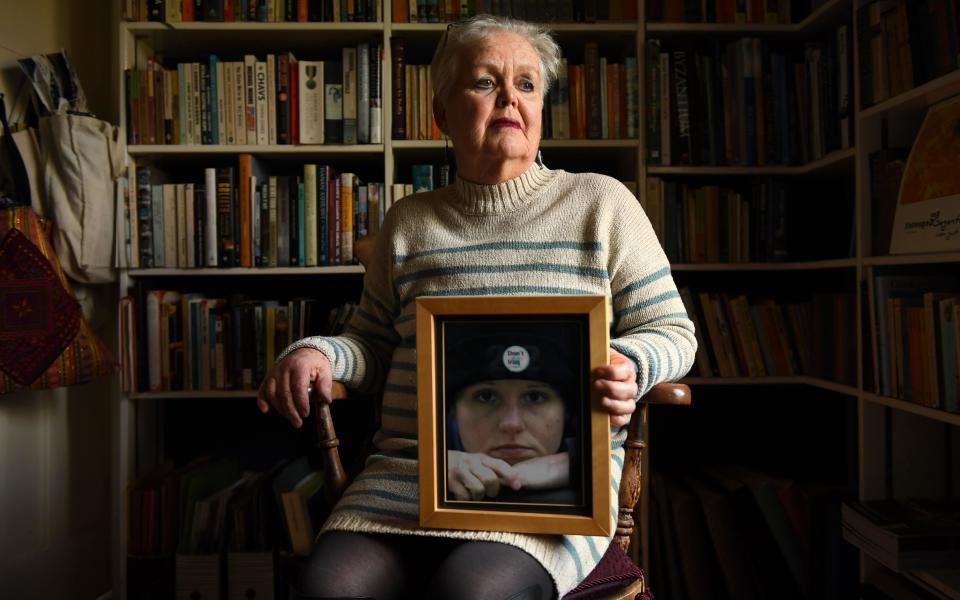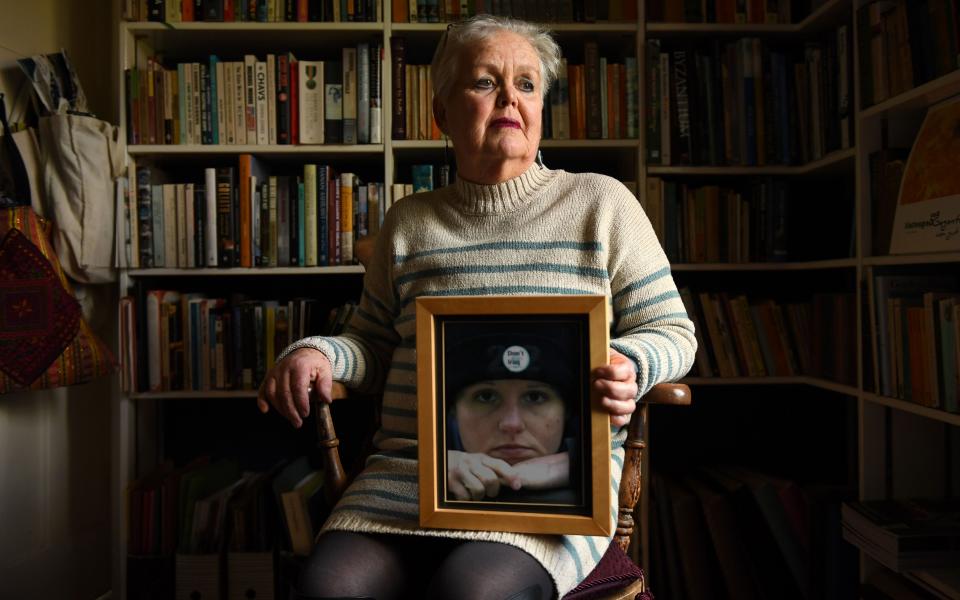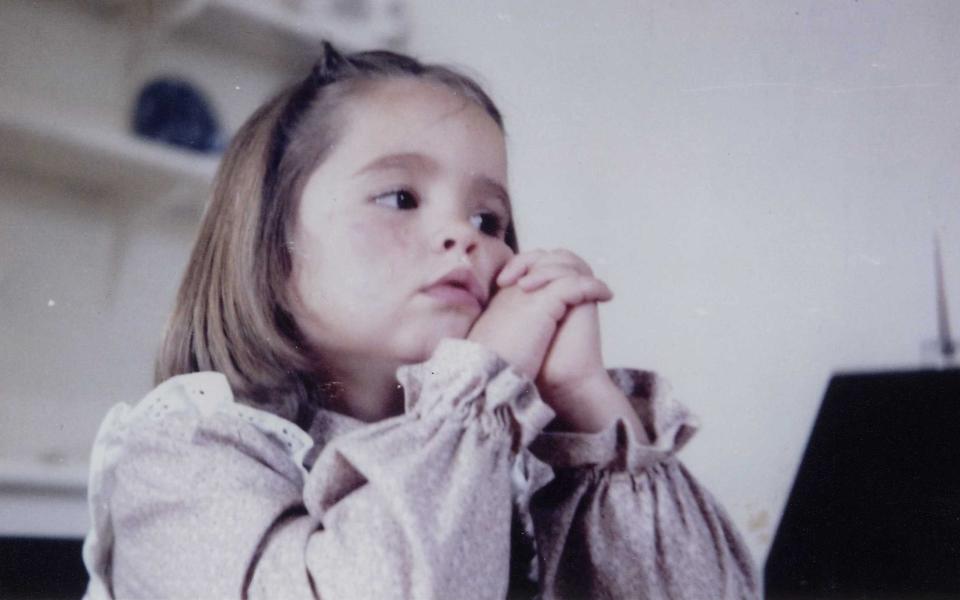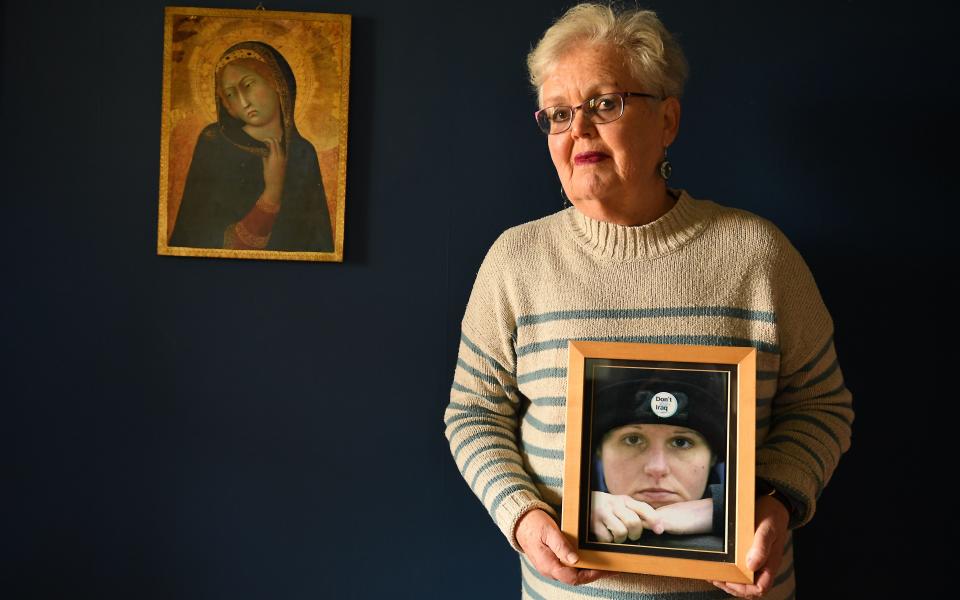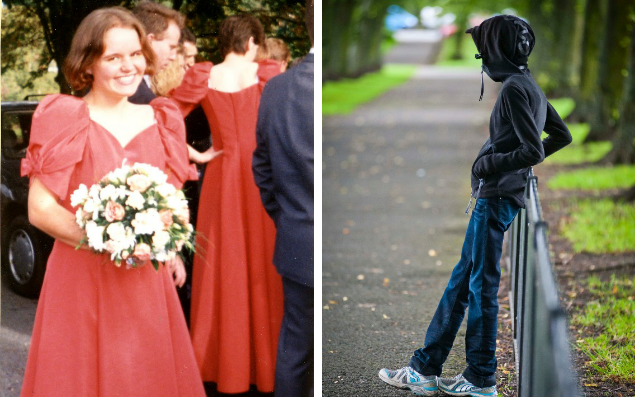'Sometimes it’s worse when your child is alive,' mother of anorexic woman who refused treatment admits
It begins as an everyday story: a teenage girl who feels out of place among the catty sixth-form girls who make cruel remarks about her weight.
Where, then, does it end?
For Charlotte Green, the anorexia that dominated every day of her adult life ended quite predictably – at the age of just 39. She died, alone in her flat, on a summer's day, when her emaciated body finally gave up on her.
It was four years since an interview with The Sunday Telegraph, in which she had outlined her determination to ensure that no court directive or medical panel could force her to live.
After two decades spent in and out of hospital, with 14 psychiatric admissions, several against her will, and force-feeding through a tube, it was an achievement she fulfilled.
Charlotte died last June, after securing an "advance statement" affirming her intention to shun any enforced treatment – regardless of the consequences.
Sometimes it’s worse when your child is alive. To see them suffering
“People say that the worst thing is to have your child to die before you,” says her mother, Sharen. “But sometimes it’s worse when your child is alive. To see them suffering, and to not be able to do anything about it. To have lost hope of any way out but death.”
“I lost hope for Charlotte a long time before she died,” she says, quietly.
Mrs Green, 70, from Dorset, has agreed to share her family’s experiences, in the hope that it could prevent even a single case of anorexia taking its most deadly course.
Brought up in an army family, Charlotte had a peripatetic childhood, but a happy one, her mother recalls, with early years in Germany, Northern Ireland and Gibraltar before she was sent to boarding school in Somerset.
“She was a really happy little girl, very outgoing, very eager to please,” Mrs Green recalls, from the family home in Wimborne.
Things changed when the family moved back to Dorset, and Charlotte began studying for her A-levels at a local grammar school.
“Suddenly Charlotte was at a school which was highly pressured. She had got 7 As and 3 Bs in her GSCEs, here the norm was 11 As. It was the sort of school where you were expected to apply for Oxbridge.”
“She started getting really competitive,” Mrs Green recalls.
Outwardly, academic performance was Charlotte’s focus. But feeling increasingly isolated, she started comfort eating, only to become increasingly insecure about her appearance in an atmosphere she later described as “bitchy”.
“There were a lot of girls criticising the way other girls looked at this school, which hadn’t been the case at the co-ed,” says Mrs Green. At the age of 17 she told her mother she wanted to go on the Slimfast Diet. Mrs Green, who had struggled with her own weight all her life, felt conflicted.
“I said ‘no, no, that’s not a great idea. But in the end, I thought well, she’s got to make her own decisions, she is getting to that age. But I really didn’t want her to do it, I was saying why not do more exercise?”
The diet was successful. Too successful. Charlotte soon reached her target weight, but continued slimming. Just as her mother became fearful, it seemed that her teenage daughter saw sense.
“One day she just stopped, and she started putting on weight again, and got back to a healthy weight,” Mrs Green recalls.
“I thought then phew, we’ve had a brush with anorexia. But I thought that was it.”
After gaining three As in her A-levels, Charlotte went to St Andrew’s University to read psychology.
Although she made some good friends, she struggled to settle in, and became increasingly conscious of her weight, now hovering between 11 and 12 stone, with bursts of crash dieting.
In the second year of university she stopped eating solid food entirely, subsisting only on soup and mugs of hot chocolate for several months.
As her weight rapidly plummeted, her flatmates became fearful for her; finally forcing her to phone her mother and tell her what was going on.
She was referred to the local hospital, but it had a three month waiting list, and no specialists in eating disorders. Mrs Green quickly took action.
As a journalist on the Bournemouth Echo, she had just interviewed the head of a new eating disorder unit which had opened in nearby Poole. She arranged for her daughter to come home and be admitted to the local unit.
“At that time I was very optimistic. We had caught it early, we had an eating disorders unit, they took her quickly. I just thought she will get better,” she recalls.
In fact, it began 15 years in and out of psychiatric institutions – which Charlotte would dub “fat camps” – for up to six months at a time.
Within two years, her weight was around half what it had been at university. As the disease progressed, she was warned that if she would not be admitted voluntarily, she would be sectioned against her will.
For short periods, she thought she was making progress, gaining weight and returning to university. But the cycle kept repeating. In her final year, she was sectioned again for six months.
She later told The Telegraph that by now she was only going through the motions of treatment – putting on exactly as much weight as was required to get out of the institutions, and be able to start starving herself again.
At the age of 29, 10 years after her university career began, she graduated with a first class degree. But by then she was struggling to make herself eat more than 400 calories a day.
Numbers to call | Help and advice from charity Beat
After achieving academic success, the disorder began to overwhelm her, destroying her physical as well as mental health.
“She had osteoporosis, fractures, her health was shattered, her teeth were shot to pieces, her thick lovely hair had gone, her skin was terrible,” Mrs Green remembers.
Nothing her parents said seemed to make any difference. Earlier this month, newsreader Mark Austin, revealed he told his severely anorexic daughter: “Starve yourself to death, just get on with it.”
The former ITV News at Ten anchor, told how he struggled to cope with the 18-year-old’s illness, telling her she was “being ridiculous” and must “get a grip”.
Looking back, Mrs Green says she and her husband Peter had no idea how to handle their daughter’s illness.
“We completely mismanaged it; we didn’t know what the hell we were doing,” she says.
“I used to bang on about having a healthy relationship with food. We just didn’t know what to do.”
“Nothing seemed to make any difference. I read somewhere one girl had stopped because she had seen her mother cry. Well Charlotte saw us cry – but it didn’t stop her. It seemed to be completely beyond her control.”
At first, Mrs Green blamed herself. “I’ve struggled with my weight all my life and I used to beat myself up when she was first ill – because I was dieting long before she was ever born.”
“Growing up, she would hear me say things like I’m just so glad that Charlotte hasn’t got my problem – because she never did and I thought I was affirming her. But actually she didn’t take it like that.”
But most women have dieted – and many if not most mothers have probably worried about trying to ensure their daughters have a better relationship with food.
Now, Mrs Green says she has learned to stop being driven by guilt. “I don't beat myself up about it now. Because most women are dieting, at least at some point.
“They don’t all end with daughters with anorexia.”
At the age of 32 in 2009, after a bout of food poisoning, Charlotte was admitted to Edinburgh Royal Infirmary, and fell into a coma.
I have been ill for 15 years and it only gets harder
Charlotte, 2012
Her parents raced from Dorset to Scotland to be by her side, while her older brothers travelled back from Greece and Suffolk.
But by now her mother had lost all hope that she would ever recover. “I wanted her to die before the boys got there,” says Mrs Green starkly.
“I didn’t want them to see her like that.”
In fact, Charlotte regained consciousness. By now her weight was dangerously low. She was told that she would be fed via a nasogastric tube. She refused, promising to eat, but was told she had no choice, and was held under a psychiatric section for six months.
The incident was among several which led Charlotte to a decision; that she would fight for the right to refuse treatment, even if the consequences were fatal.
In June 2012, a High Court judge ruled that another sufferer of severe anorexia should be force-fed, because the 32-year-old woman’s refusal to eat had brought her to the point of death.
Crucially, the judge ruled that the while the patient might not see value in her life now, that could change if the disease lessened its grip.
Charlotte began battling for her desire to reject treatment to be respected.
In an interview with The Sunday Telegraph later that year, she said: “When you have been ill for a very long time, there is a chance of recovery, but just how small is that chance for me?
“I have been ill for 15 years and it only gets harder. If it gets to that stage again, I want to be allowed the responsibility for what happens next.”
By now, her appearance was skeletal. On a summer’s day, thick woollen layers could not disguise her protruding bones, and shoulders sharp as wire coat-hangers.
Muscle wastage in Charlotte’s jaw meant she had lost most of her own teeth, with arms unimaginably thin, while hands bore the raw trace of chilblains. Her head was shaven, partly because her hair had become so thin.
“My parents are resigned to the fact that I am going to die,” she said.
“They say there is no point to this. Obviously they don’t want me to die, but if I am never to recover, they agree that the whole process is slow, agonising torture for all the family, and it would be best to end it.”
She was so fun to be with … she could crack up a room she was so amusing and witty
Sharen says of Charlotte
Mrs Green looks back. “She wanted to stay in control of her own life. We went along with it. She had been ill for so long,” she says.
“Peter never really lost hope that she would get better – but I lost it years ago.”
In October 2013, at the age of 36, Charlotte secured an “advanced statement” setting out her wish to have no enforced treatment, gaining agreement from psychiatrists that she had sufficient mental capacity to take such a decision.
She is believed to be the second such case to have agreed a statement under such circumstances.
“They acknowledged that her losing weight and going into hospital – putting on weight so she could get out, so she could start losing weight...that it was just a circle. It wasn’t getting anywhere,” says her mother.
“She managed to convince them that she should not be sectioned, that she should not be fed against her will, so there would be no question of tube feeding and that she should not go into hospital again unless she wanted to."
Charlotte never entered a hospital again. She died last June, alone in her Edinburgh flat.
Mr and Mrs Green found out after they asked a friend to check on her, when they had not heard from their daughter, who normally contacted them daily. Her parents resisted a post-mortem.
“She had died, we knew what she had died of. Who cares whether it was her brain or her heart that finally gave up, or whether it was multiple organ failures?” says her mother. On the death certificate, cause of death is listed as starvation/anorexia. Her parents took comfort from some of the circumstances surrounding her death.
“I was really relieved that she died in her flat,” says Mrs Green. “She used to walk the canal in Edinburgh, she used to walk about six hours a day, always trying to expend energy.
“She could easily have fallen in the canal and had to be..." she breaks off. “It could have been much more horrendous than it was.”
And despite her daughter’s troubled mind, there was happiness, she stresses. “She was so fun to be with...she could crack up a room she was so amusing and witty – but you knew beneath all that she was very, very troubled.”
“There were lots of things in life that she really enjoyed – she loved swimming in the sea, she loved crosswords, she loved The Archers.”
“And she was so empathetic, always helping people. She volunteered in a food bank, in a soup kitchen. For her funeral, she had asked that everyone bring a tin for the foodbank, not flowers.”
The couple’s last memories of their daughter are among their most precious.
“A couple of weeks before she died, we had a huge party here, we were celebrating my 70th birthday,” Mrs Green recalls.
“We had a marquee on the lawn and the swimming pool was open and all the family was here, and a load of friends she had known since she was a child. That was really special.”
“And after we took her back to the station, I said to Peter, ‘that could be the last time we see her alive’. And it was. But I was glad to keep that memory.”
Anorexia | How to approach someone who you think or know has an eating disorder

 Yahoo News
Yahoo News 